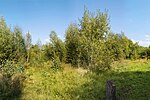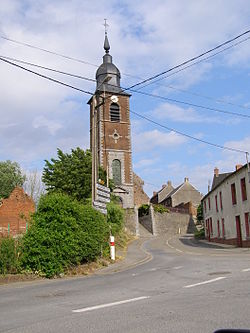The Carrière des Nerviens Regional Nature Reserve (in French Réserve naturelle régionale de la carrière des Nerviens) is a protected area in the Nord-Pas-de-Calais region of northern France. It was established on 25 May 2009 to protect a site containing rare plants and covers just over 3 hectares (7.4 acres). It is located in the municipalities of Bavay and Saint-Waast in the Nord department.
The reserve was created to protect fifteen plants of regional interest and three plant communities listed in the Habitats Directive. Its flora are linked to calcium present in marl. It is located in a transition zone between the oceanic and semi-continental climates and that gives increased biodiversity, with typical species of the atlantic areas and others more continental. The reserve also plays a role in a wildlife corridor.
The site consists of an old quarry of sandstone dated to the Famennian stage in the Late Devonian epoch. It was backfilled in the 1970s with marl. The new soil was re-colonized by pioneer species, which coexist alongside an established afforestation, forming a mosaic of habitats.
CPIE Bocage de l'Avesnois, a non-governmental organization, is the owner and operator of the reserve. The main objective is to maintain the current diversity. To this end, regular management mainly struggles against the afforestation and against invasive species, such as Japanese knot weed. The secondary objectives are environmental education, heritage interpretation, improvement of knowledge fauna and flora, and environmental monitoring.












